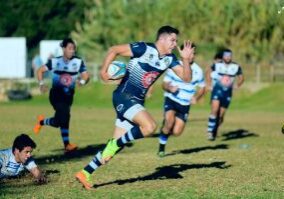Whether you’re a professional athlete or just someone who takes training and fitness seriously, you’ll find you need a good support system in place to maximize your results and keep you going on the down days. Your friends and family are great for helping out with everyday problems, such as childcare or emotional support, but there’s a whole team of professionals that bring their own expertise and knowledge to help you stay as focused and healthy as possible. If you’re new to training or just starting out in your sports career, read on – we’ve rounded up five of the most important people you’ll meet on your fitness journey.
Your Coach
Your coach is almost certainly going to be the most important person in your sporting life, as their role is based around making your performance the best it can possibly be. Their main role is to teach you the fundamentals of your chosen sport, whether it’s boxing or tennis, through a variety of methods. They’ll plan drills and practice sessions, and might utilize videos and books for demonstration examples. Another vital part they’ll play in assisting you is monitoring your general health and fitness, and make recommendations that can improve how you play. The main goal is to help you perform at peak level and win as often as possible. In addition, they spend a lot of time keeping up with current developments in health, fitness, and sport, and implement their findings into your training program.
Your Doctor Or Nurse
Your doctor or nurse is going to be the first person you turn to if you receive a serious injury; while this can usually be avoided by correct warm-up exercises and training, injury is always a risk, especially if you play contact sports. Many injuries, such as strains or sprains, will heal themselves after a few weeks. However, sometimes you might find they drag on – which is when you end up in the doctor’s office. Whoever you see will have extensive medical training, whether they’ve completed a Master’s degree in New York City or one of many NP programs in Michigan; they’ll be able to assess your injury through a series of tests and x-rays, and then advise you on treatment, recovery time and the outlook for the future.
A Sports Physiotherapist
The second of many medical professionals that you might encounter, an appointment with a sports physiotherapist usually follows on from seeing a doctor or nurse for a serious injury. Their role is to assess the problem and then plan a suitable treatment program designed to get you back on your feet as quickly and safely as possible. They use several different methods to treat injuries, including massage, muscle, and joint manipulation, muscle stretching, and neurodynamics, all designed to work the area gently to avoid further complications. They can also advise you on how long it will be before you can return to your regular training program, and how to avoid any future injuries or damage.
A Dietician or Nutritionist
Anyone who is interested in sports and fitness will know that all the training in the world won’t maximize your performance if you’re not fueling your body with the correct foods. A dietician not only advises on meal planning, general healthy eating, and different food groups but can also give you tips on eating tailored to your chosen sport. For example, they could advise you on specific nutritional needs for weight training, and on preparing for competitions with carb-loading techniques. They’re also experts on hydration and can give you advice on the type and amount of liquid you should be consuming during training – this often depends on both your body size and the type of sport you play.
A Sports Psychologist
While physical training and medical care are important parts of athletics and sports, without a positive mental attitude, you’ll never perform at your best. The role of a sports psychologist is to address just that; using expert techniques, they help with motivation, persistence, and goal setting, so you remain focused and positive. They employ specific strategies such as visualization and relaxation techniques to help you overcome any obstacles, and are also vital around competition time – many athletes often find the pressure to perform well overwhelming, and a sports psychologist can help them deal with this effectively. They’re also vital in the role of injury recovery; injury can affect sportspeople mentally as well as physically, and sports psychologists work to help them tolerate pain, stay positive, and focus on the future.










